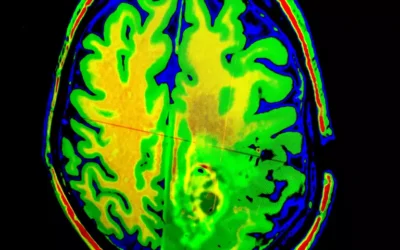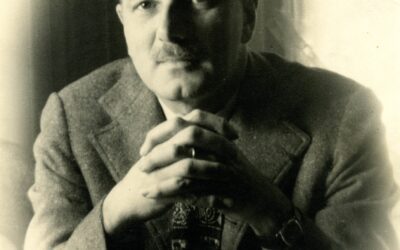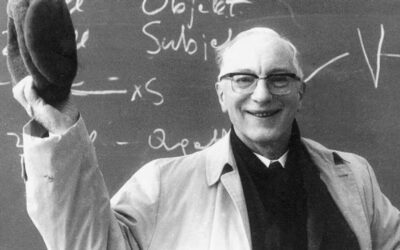Who was Jean-Paul Sartre?

Jean-Paul Sartre (1905-1980), the renowned French philosopher, novelist, and playwright, stands as one of the most influential thinkers of the 20th century. His philosophical ideas, particularly his conception of existentialism, have had a profound impact on various fields, including psychology, psychotherapy, and our understanding of the human condition. Sartre’s emphasis on human freedom, responsibility, and the inherent meaninglessness of existence has challenged traditional notions of human nature and sparked ongoing debates about the nature of consciousness, identity, and morality.
In this comprehensive essay, we will explore Sartre’s key philosophical contributions and their far-reaching implications for psychology and psychotherapy. We will examine how his ideas have shaped existential psychology, humanistic approaches to therapy, and our understanding of authenticity and personal growth. By engaging with Sartre’s thought, we aim to shed light on the enduring significance of his work for the understanding of the human psyche and the practice of psychotherapy in the contemporary world.
-
Sartre’s Philosophy of Existence and Freedom
2.1. Existence Precedes Essence
At the heart of Sartre’s philosophy lies the radical claim that “existence precedes essence.” This idea challenges traditional notions of human nature, arguing that there is no predetermined human essence or fixed set of characteristics that define what it means to be human. Instead, Sartre contends that humans first come into existence and then create their own essence through their choices and actions.
This concept has profound implications for psychology and our understanding of personal identity. It suggests that human beings are not bound by inherent traits or predetermined destinies, but are instead fundamentally free to shape their own nature and future. This perspective emphasizes the role of individual agency and responsibility in the formation of one’s identity and life path.
2.2. Radical Freedom and Responsibility
Closely linked to the idea that existence precedes essence is Sartre’s notion of radical freedom. According to Sartre, humans are “condemned to be free” – we have no choice but to choose, and even the refusal to make a choice is itself a choice. This freedom is not just a feature of human existence but its very foundation.
Sartre argues that this radical freedom comes with an equally radical responsibility. Since we are the authors of our own actions and, by extension, our own selves, we bear full responsibility for who we are and what we do. This responsibility extends not just to our individual lives but to humanity as a whole, as our choices help shape the human condition.
2.3. Bad Faith and Authenticity
Sartre introduces the concept of “bad faith” (mauvaise foi) to describe the ways in which individuals deny their fundamental freedom and responsibility. Bad faith involves self-deception, where one tries to escape the anguish of freedom by pretending to be bound by external factors or fixed identities.
In contrast to bad faith, Sartre advocates for authenticity – a way of living that fully acknowledges and embraces one’s freedom and responsibility. Authentic existence involves facing the anxiety of freedom and making conscious choices without hiding behind predetermined roles or excuses.
These concepts have significant implications for psychotherapy, particularly in addressing issues of self-deception, avoidance of responsibility, and the pursuit of authentic living.
-
Sartre’s Psychology of Consciousness and Emotion
3.1. The Phenomenology of Consciousness
Sartre’s exploration of consciousness draws heavily on phenomenology, a philosophical approach that focuses on the direct experience of phenomena. In his work “The Transcendence of the Ego,” Sartre argues against the idea of a substantive, unified self or ego that exists independently of consciousness.
Instead, Sartre proposes a view of consciousness as intentional – always directed towards objects in the world – and fundamentally empty or transparent. This perspective challenges traditional notions of the self and has implications for our understanding of identity, self-awareness, and the nature of psychological disorders.
3.2. Emotions as Magical Transformations of the World
In “Sketch for a Theory of the Emotions,” Sartre presents a unique perspective on the nature of emotions. He argues that emotions are not simply internal states or physiological reactions, but ways of magically transforming the world when our projects are thwarted.
For Sartre, emotions involve a degradation of consciousness, where we abandon rational engagement with the world and instead attempt to change it through magical thinking. This view of emotions as active, world-directed phenomena offers a different perspective from traditional psychological theories and has implications for understanding and treating emotional disorders.
-
Sartre’s Influence on Existential Psychology and Psychotherapy
4.1. The Foundations of Existential Psychology
Sartre’s philosophy has been instrumental in the development of existential psychology, a school of thought that emphasizes themes such as meaning, freedom, responsibility, and authenticity. Psychologists and therapists influenced by Sartre’s ideas focus on helping individuals confront their freedom, make authentic choices, and create meaning in their lives.
Key figures in existential psychology, such as Rollo May, Irvin Yalom, and Emmy van Deurzen, have drawn heavily on Sartrean concepts in developing their therapeutic approaches. These approaches emphasize the importance of facing existential anxieties, embracing personal responsibility, and living authentically.
4.2. The Role of Freedom and Responsibility in Therapy
Sartre’s emphasis on radical freedom and responsibility has significant implications for psychotherapy. From this perspective, the goal of therapy is not to uncover hidden determinants of behavior or to adjust individuals to societal norms, but to help them recognize and embrace their freedom to choose and create their lives.
Existential therapists influenced by Sartre might focus on helping clients:
- Recognize patterns of bad faith and self-deception
- Confront the anxiety of freedom and make authentic choices
- Take responsibility for their lives and actions
- Create meaning and purpose in the face of life’s inherent meaninglessness
4.3. Authenticity as a Therapeutic Goal
The concept of authenticity, central to Sartre’s philosophy, has become an important goal in many forms of psychotherapy. Authentic living involves acknowledging one’s freedom, taking responsibility for one’s choices, and living in accordance with one’s values and commitments.
Therapists working from this perspective might help clients explore questions such as:
- What does it mean to live authentically?
- How can one overcome societal pressures and expectations to live more genuinely?
- What are the barriers to authentic self-expression and how can they be overcome?
Irvin Yalom’s Existential therapy modality is heavily based on the work of Sartre
-
Sartre’s Relevance to Contemporary Psychology and Mental Health
5.1. Existential Anxiety and Modern Life
Sartre’s ideas about the anxiety of freedom and the search for meaning resonate strongly in the context of contemporary life. In a world characterized by rapid change, uncertainty, and the erosion of traditional sources of meaning, many individuals struggle with existential anxiety and the challenge of creating purpose in their lives.
Sartre’s philosophy offers a framework for understanding and addressing these challenges, emphasizing the importance of embracing uncertainty, making conscious choices, and actively creating meaning. This perspective can be particularly relevant in addressing issues such as depression, anxiety, and existential crises.
5.2. Identity and Self-Creation in a Postmodern World
Sartre’s rejection of fixed essences and his emphasis on self-creation align well with postmodern perspectives on identity. In a world where traditional identities and roles are increasingly fluid, Sartre’s ideas offer a way of thinking about identity as an ongoing project of self-creation rather than a fixed attribute.
This perspective can be particularly useful in addressing issues related to identity formation, cultural dislocation, and the challenges of navigating multiple identities in a globalized world.
5.3. Social Engagement and Collective Responsibility
While often associated with radical individualism, Sartre’s later work emphasized the importance of social engagement and collective responsibility. His concept of “engaged literature” and his political activism highlight the idea that individual freedom and authenticity must be realized within a social context.
This aspect of Sartre’s thought has relevance for community psychology and social justice-oriented approaches to mental health. It suggests that authentic living and personal growth cannot be separated from engagement with social and political realities.
-
Critiques and Limitations of Sartre’s Philosophy
6.1. The Challenge of Radical Freedom
Critics of Sartre have argued that his concept of radical freedom is overstated and fails to adequately account for the real constraints and determinants that shape human life. Factors such as biology, social conditioning, and material circumstances clearly play a significant role in shaping human possibilities and choices.
From a psychological perspective, this critique raises questions about the balance between emphasizing personal responsibility and acknowledging the role of environmental and unconscious factors in shaping behavior and mental health.
6.2. The Problem of Intersubjectivity
Sartre’s early philosophy has been criticized for its emphasis on individual consciousness and freedom at the expense of a fuller account of human relationality and intersubjectivity. His famous line “Hell is other people” from the play “No Exit” has often been taken (somewhat out of context) as emblematic of a philosophy that prioritizes individual freedom over human connection.
While Sartre’s later work engaged more deeply with social and political dimensions of human existence, this critique highlights the need for a more nuanced understanding of the relationship between individual authenticity and social connection in psychological theory and practice.
6.3. The Limits of Conscious Choice
Sartre’s emphasis on conscious choice and responsibility has been challenged by psychological theories that emphasize the role of unconscious processes in shaping behavior and experience. Psychoanalytic and cognitive psychological perspectives argue that many of our actions and feelings are influenced by factors outside our conscious awareness or control.
This critique raises important questions about the nature of agency, responsibility, and the possibilities for change in psychotherapy. It suggests the need for a more nuanced understanding of the relationship between conscious choice and unconscious influences in human psychology.
-
Conclusion: The Enduring Legacy of Sartre’s Thought
7.1. Sartre’s Continuing Relevance
Despite these critiques and limitations, Sartre’s philosophy continues to exert a powerful influence on psychology, psychotherapy, and our understanding of the human condition. His emphasis on freedom, responsibility, and the need for authentic living speaks to enduring human concerns and challenges.
In a world grappling with issues of meaning, identity, and social responsibility, Sartre’s ideas offer valuable resources for understanding and addressing the psychological challenges of contemporary life. His philosophy provides a framework for thinking about human agency, the nature of consciousness, and the possibilities for personal and social transformation.
7.2. The Future of Sartrean Psychology
As psychology and psychotherapy continue to evolve, Sartre’s ideas are likely to remain a vital source of inspiration and debate. Future developments in Sartrean psychology may involve:
- Integration with neuroscientific perspectives on consciousness and decision-making
- Exploration of the relationship between individual authenticity and social justice
- Development of therapeutic approaches that balance emphases on freedom and responsibility with recognition of unconscious and social determinants
- Application of Sartrean concepts to emerging issues in technology, globalization, and environmental psychology
By continuing to engage critically and creatively with Sartre’s thought, psychologists and therapists can draw on the rich resources of existential philosophy to address the complex challenges of human existence in the 21st century.
-
Sartre’s Key Works
8.1. “Being and Nothingness” (1943)
Sartre’s magnum opus, this work lays out his existential philosophy and his views on consciousness, freedom, and human relationships. It introduces key concepts such as bad faith and the look of the Other.
8.2. “Existentialism Is a Humanism” (1946)
This lecture, later published as an essay, provides a concise overview of Sartre’s existentialist philosophy and its ethical implications. It’s often used as an introduction to Sartrean thought in psychology and philosophy courses.
8.3. “The Transcendence of the Ego” (1936)
This early work outlines Sartre’s phenomenological approach to consciousness and his critique of the idea of a substantive ego or self.
8.4. “Sketch for a Theory of the Emotions” (1939)
Sartre presents his unique perspective on emotions as magical transformations of the world, challenging traditional psychological theories of emotion.
8.5. “No Exit” (1944)
This play, famous for the line “Hell is other people,” explores themes of interpersonal relationships, self-deception, and the gaze of others.
Read More Depth Psychology Articles:
Taproot Therapy Collective Podcast
Jungian Innovators
Jungian Topics
How Psychotherapy Lost its Way
Therapy, Mysticism and Spirituality?
The Symbolism of the Bollingen Stone
What Can the Origins of Religion Teach us about Psychology
The Major Influences from Philosophy and Religions on Carl Jung
How to Understand Carl Jung
How to Use Jungian Psychology for Screenwriting and Writing Fiction
The Symbolism of Color in Dreams
How the Shadow Shows up in Dreams
Using Jung to Combat Addiction
Jungian Exercises from Greek Myth
Jungian Shadow Work Meditation
Free Shadow Work Group Exercise
Post Post-Moderninsm and Post Secular Sacred
The Origins and History of Consciousness
Jung’s Empirical Phenomenological Method
The Future of Jungian Thought
Jungian Analysts
Anthropology
Mystics and Gurus
Philosophy
Spirituality
Types of Therapy
Influential Psychologists
Influences on Jung
Classical Literature
Iphigenia in Aulis
Greek Tragedies Influence on Jung
The Psychology of the Peloponesian War
Bibliography
Catalano, J. S. (1985). A Commentary on Jean-Paul Sartre’s Being and Nothingness. University of Chicago Press.
Cooper, D. E. (1999). Existentialism: A Reconstruction. Blackwell Publishers.
Cox, G. (2009). Sartre and Fiction. Continuum.
Detmer, D. (2008). Sartre Explained: From Bad Faith to Authenticity. Open Court.
Flynn, T. R. (2014). Sartre: A Philosophical Biography. Cambridge University Press.
Foulquié, P. (1974). Existentialism. Translated by Kathleen Raine. Greenwood Press.
Howells, C. (Ed.). (1992). The Cambridge Companion to Sartre. Cambridge University Press.
Kaufmann, W. (1975). Existentialism from Dostoevsky to Sartre. Penguin Books.
May, R. (1983). The Discovery of Being: Writings in Existential Psychology. W. W. Norton & Company.
McBride, W. L. (1997). Sartre’s Political Theory. Indiana University Press.
Moran, D. (2000). Introduction to Phenomenology. Routledge.
Morris, K. J. (2008). Sartre. Blackwell Publishing.
Priest, S. (Ed.). (2001). Jean-Paul Sartre: Basic Writings. Routledge.
Sartre, J. P. (1956). Being and Nothingness. Translated by Hazel E. Barnes. Washington Square Press.
Sartre, J. P. (2007). Existentialism Is a Humanism. Translated by Carol Macomber. Yale University Press.
Spade, P. V. (1996). Jean-Paul Sartre’s Being and Nothingness: Class Lecture Notes. Purdue University.
Stewart, J. (Ed.). (1998). The Debate between Sartre and Merleau-Ponty. Northwestern University Press.
Van Deurzen, E. (2002). Existential Counselling & Psychotherapy in Practice. SAGE Publications.
Warnock, M. (1965). The Philosophy of Sartre. Hutchinson University Library.
Webber, J. (2009). The Existentialism of Jean-Paul Sartre. Routledge.
Yalom, I. D. (1980). Existential Psychotherapy. Basic Books.

























0 Comments